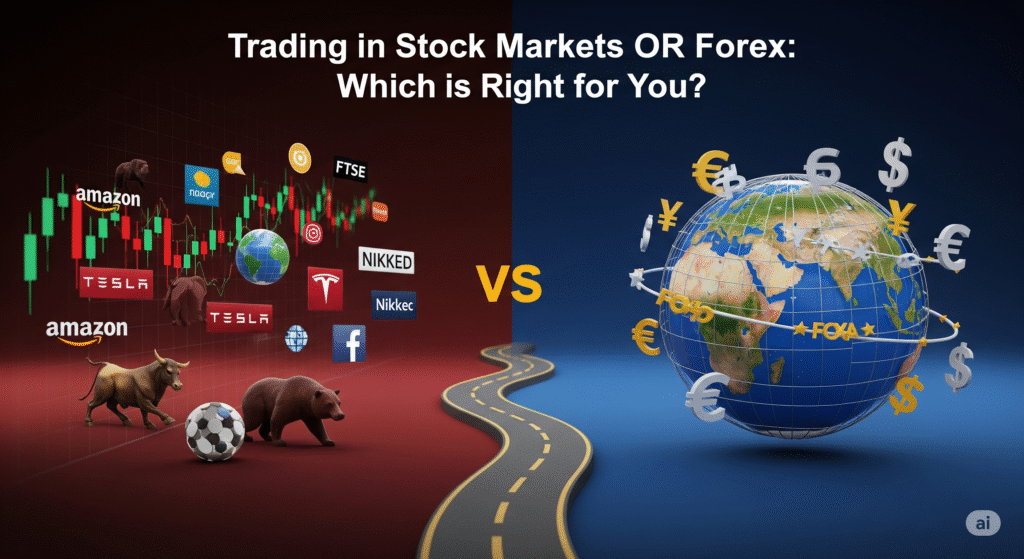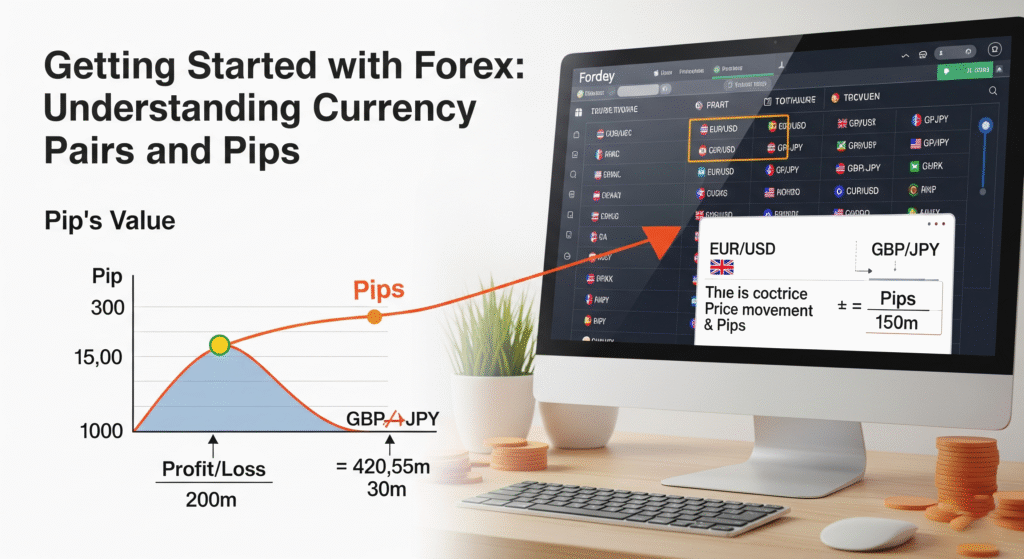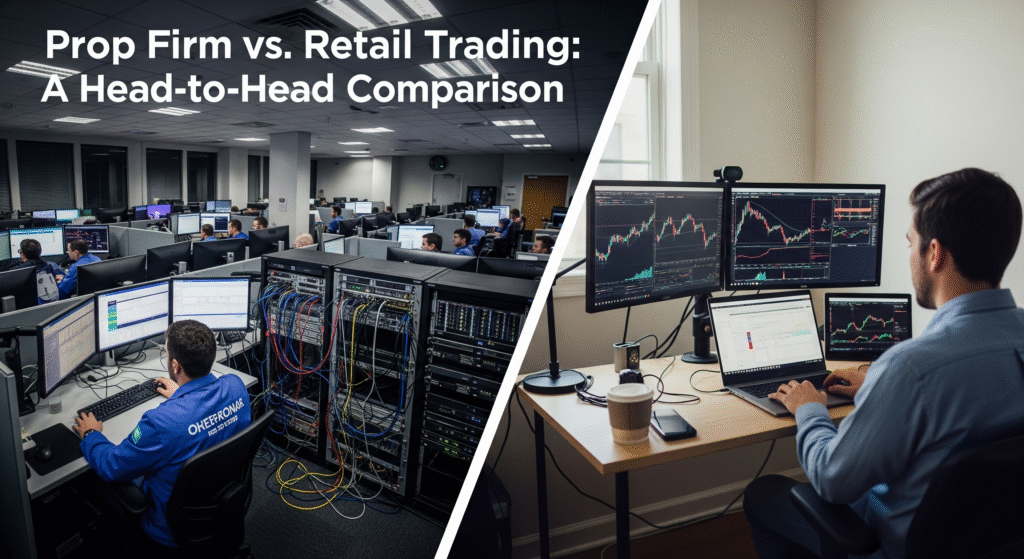He is a Full-time trader and Trading Mentor @ Findependence Trading Academy, with over 18 years of hands-on experience in the stock and forex markets. His journey from being a working professional to achieving financial independence through trading has inspired hundreds of aspiring traders to take control of their financial future.
His trading style revolves around identifying high-probability swing setups in equities and executing precise intraday trades in the forex markets. He treats trading like a business, where rules, clarity, and risk limits aren’t optional—they’re essential. He’s trained over 100+ traders through personalized coaching and structured programs, focusing not just on strategy but on building the mindset and systems that lead to long-term success.
A strong believer in keeping trading simple and practical, He shares real-world lessons drawn from market wins, losses, and years of evolving with changing conditions. He is also the author of “Getting Started with Technical Analysis” and a creator of custom TradingView indicators designed to give traders an edge.
When he’s not charting or mentoring, you’ll find him enjoying a game of Table Tennis.
Table of Contents
Trading in Stock Markets OR Forex: Which is Right for You?
“The goal of a successful trader is to make the best trades. Money is secondary.” – Alexander Elder
For nearly two decades, I’ve been immersed in the world of trading. Over the years, one question keeps resurfacing, especially from aspiring traders:
“Should I start with stocks or dive into forex?”
It’s a valid question—one that doesn’t have a one-size-fits-all answer. The choice between trading in the stock market or the foreign exchange (forex) market depends on your personality, time commitment, risk tolerance, capital, and goals.
In this post, I’ll walk you through the basics of both, a comparison of pros and cons, and help you assess which may suit you better. Whether you’re a complete beginner or someone looking to switch lanes, this blog is written from the trenches of 18 years of real-world trading—no fluff, no sugarcoating.

📌 What is Stock Market Trading?
Stock market trading involves buying and selling shares of publicly listed companies on exchanges like the NSE, BSE, NYSE, or NASDAQ. When you trade stocks, you essentially own a piece of a company—however small that piece may be.
There are various ways to trade stocks:
- Intraday Trading – Positions are opened and closed within the same day.
- Swing Trading – Holding stocks for a few days to weeks.
- Positional/Investment – Long-term holdings, ranging from months to years.
Each style demands a different mindset and level of commitment.
📌 What is Forex Trading?
Forex (foreign exchange) trading is the act of buying and selling currency pairs—like EUR/USD, GBP/INR, or USD/JPY—with the aim of profiting from changes in exchange rates.
The forex market is:
- Decentralized (no central exchange)
- Massive in volume (over $6 trillion traded daily)
- Open 24 hours, 5 days a week
Traders often use high leverage, short-term strategies, and focus on technical analysis and macroeconomic news.
💡 The Key Differences Between Stock and Forex Trading
| Feature | Stock Market | Forex Market |
| Trading Hours | 9:15 AM to 3:30 PM IST (NSE/BSE) | 24 Hours (Mon–Fri) |
| Market Size | ~$100 Billion/day (India) | ~$6 Trillion/day (Global) |
| Leverage | Limited (usually 1:2 to 1:5 in retail India) | High (1:30 to 1:500 depending on broker & region) |
| Volatility | Moderate to High | High |
| Regulation | Centralized (SEBI, SEC) | Decentralized |
| Instruments | Stocks, ETFs, Derivatives | Currency Pairs |
| Influencing Factors | Company earnings, news, sector performance | Central bank policy, geopolitical risk, macro news |
✅ Pros and Cons of Stock Market Trading
✔️ Pros:
- Regulated and Transparent: In countries like India and the US, stock markets are tightly regulated, offering investor protection.
- Well-researched Assets: Plenty of data, reports, and analysis are available.
- Low Leverage = Lower Risk: Especially suitable for beginners.
- Dividend Income: Investors can earn passive income in addition to capital gains.
❌ Cons:
- Limited Trading Hours: Especially restrictive for working professionals.
- Market Gaps: News after market hours can lead to gaps at the open.
- Slower Movements: Compared to forex, stocks may take longer to trend or reverse.
✅ Pros and Cons of Forex Trading
✔️ Pros:
- 24/5 Market: Perfect for those who can’t trade during the day.
- High Liquidity & Volatility: Great for short-term and scalping strategies.
- Low Entry Barriers: Small accounts can be started with a few hundred dollars.
- High Leverage Potential: Can amplify gains with small capital.
❌ Cons:
- High Risk Due to Leverage: One mistake can wipe out your account if unmanaged.
- Complex Macroeconomics: Currency moves depend on global news, central banks, inflation data, etc.
- Less Regulation in Some Regions: Risk of shady brokers if not careful.
- No Ownership: You’re not buying an asset, just speculating on price.
🔍 Emotional Realities No One Talks About
After trading both markets for over 18 years, let me be brutally honest.
- Stock trading feels slower but safer. It rewards patience and research.
- Forex trading feels exciting and dangerous. It’s like Formula 1—thrilling, but not for the faint-hearted.
- Your emotional makeup plays a huge role.
If you’re easily stressed, hate fast decision-making, or find economic jargon exhausting—stick to stocks.
If you’re highly analytical, love action, and can stomach rapid drawdowns—forex might be your playground.
I’ve seen friends burn out trying to force themselves into a market that didn’t match their nature. Trading is not about ego—it’s about alignment.
🧭 Which Market is Right for You?
Here’s a decision framework I often use with my students:
| Question | If Yes → Go with… |
| Do you want to own actual companies? | Stock Market |
| Can you dedicate a few hours at night or early morning? | Forex |
| Do you have small capital but want faster compounding? | Forex (with caution) |
| Are you interested in fundamental analysis and company reports? | Stock Market |
| Do you like macroeconomics, interest rate cycles, inflation talk? | Forex |
| Do you prefer regulated, structured markets? | Stock Market |
| Can you handle fast price swings and quick decisions? | Forex |
No one can answer this for you. Try both in a demo account, journal your trades, and reflect honestly.
🧰 Tools & Skills Required for Each
🛠️ For Stock Trading:
- A good broker with low fees (e.g., Zerodha, ICICI Direct)
- Screener tools (e.g., TradingView, StockEdge)
- Skills in:
- Technical analysis
- Fundamental analysis
- Earnings calendar tracking
- Risk management
- Technical analysis
🛠️ For Forex Trading:
- A global broker with tight spreads (IC Markets, Pepperstone)
- MT4/MT5 or TradingView for charting
- Economic calendar (like Forex Factory)
- Skills in:
- Chart patterns
- News trading
- Money management with leverage
- Quick execution strategies
- Chart patterns
👨🏫 What I Tell My Students…
Whenever someone joins my trading academy and asks, “Sir, what’s better—stocks or forex?”
I reply with another question:
“Do you want to be comfortable, or do you want to be in control of your journey?”
- Stocks offer comfort—structure, research, regulation.
- Forex offers control—speed, flexibility, leverage.
But both require discipline, strategy, and self-awareness.
I started with stocks, then moved to forex, and today I trade both—but with clear boundaries and goals.
📈 Final Thoughts
There’s no superior market—only the right market for YOU.
In your journey, you may switch lanes, make mistakes, blow accounts, and doubt your path. That’s okay. That’s growth. The key is to know thyself, stay humble, and never stop learning. Whether it’s a slow climb with stocks or a thrilling sprint with forex, both roads can lead to financial independence—if walked with skill and discipline.
And if you’re just starting out and happen to be in Pune, I highly recommend exploring some of the personalized, hands-on stock market courses in Kothrud. A well-guided foundation can make all the difference between random trading and strategic growth.
🏁 Ready to Decide?
Try this:
- Open a demo account in both markets.
- Backtest 1 strategy each.
- Trade it for 30 days.
- Journal how it felt—emotionally, mentally, financially.
- Pick the one that feels like home.
If you found this guide helpful, or want personalized help to start your trading journey—I’m here to help. Drop a comment, reach out, or explore our beginner-to-advanced trading programs.
Let’s trade smart. Let’s trade free.
Written by:
Shantanu Joshi
Full-time Trader | Mentor | Founder, Findependence Trading Academy
18+ Years in Stock and Forex Markets



